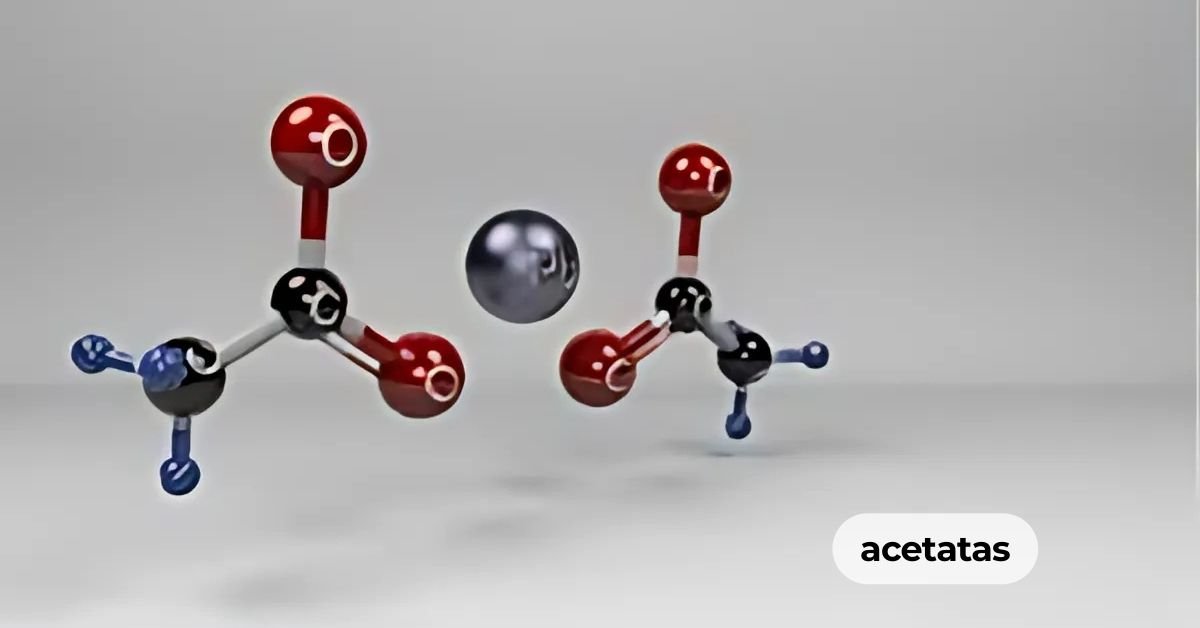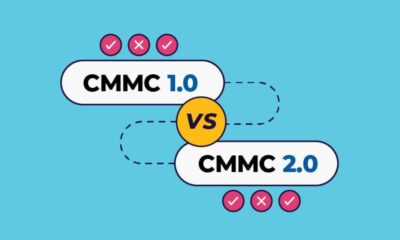BLOG
Exploring the Life and Legacy of Ivanka Hrynda: A Rising Star

Ivanka Hrynda is a name that’s been making waves in various circles lately. As a rising star, she embodies ambition, talent, and dedication. But who is Ivanka? What drives her passion for success? In this blog post, we will dive deep into her background and explore the remarkable journey that has propelled her to prominence. From her early years to significant career milestones, advocacy work, and even controversies—there’s much to uncover about this intriguing figure. Join us as we navigate through the life of Ivanka Hrynda and discover why she’s someone you should keep an eye on in today’s dynamic landscape.
Early Years and Education
Ivanka Hrynda’s journey began in a small town, where she was born into a family that valued education and hard work. From an early age, her parents instilled in her the importance of perseverance and ambition.
Growing up, Ivanka displayed a natural curiosity and passion for learning. She excelled academically, often participating in various extracurricular activities that fostered her leadership skills.
Her high school years were marked by numerous achievements. Whether it was on the debate team or leading community service projects, Ivanka stood out among her peers.
After graduating with honors, she pursued higher education at a prestigious university. There, she immersed herself in subjects like business and social sciences which laid the foundation for her future endeavors.
These formative experiences shaped not only her character but also fueled her aspirations to make an impact on society.
Career Achievements and Rise to Prominence
Ivanka Hrynda’s career trajectory is nothing short of impressive. Starting out in a competitive industry, she quickly made her mark with innovative ideas and strategic vision.
Her ability to blend creativity with business savvy propelled her into leadership roles early on. Each position she held seemed to amplify her influence and reach.
Hrynda’s projects have gained recognition for their impact and originality. She has not only led successful campaigns but also inspired teams to push boundaries.
Awards and accolades followed, highlighting her contributions across various sectors. This recognition solidified her status as a leading figure in the community.
Today, Ivanka stands at the forefront of emerging trends. Her unique perspective continues to shape conversations around key issues, proving she is more than just a rising star—she is a force to be reckoned with.
Advocacy Work and Philanthropy
Ivanka Hrynda’s advocacy work showcases her commitment to social change. She passionately champions women’s rights and empowerment, believing in the potential of every woman to lead.
Through various initiatives, she has focused on education and economic opportunities for marginalized communities. Her efforts have not gone unnoticed; many organizations recognize her dedication.
Philanthropy is another cornerstone of Ivanka’s mission. By partnering with nonprofits, she amplifies voices that often go unheard. Whether through mentorship programs or funding scholarships, her impact resonates deeply.
Her belief in sustainability also drives many projects, linking environmental conservation with community development. This multifaceted approach reflects a holistic view of progress.
As she continues this journey, Ivanka inspires countless individuals to take action and effect meaningful change within their own circles.
Controversies Surrounding Ivanka Hrynda
Ivanka Hrynda has not been without her share of controversies. As she gained prominence, scrutiny intensified around her actions and decisions.
One notable incident involved her stance on specific social issues. Critics argued that her views sometimes lacked depth or clarity. This led to heated debates across various platforms.
Additionally, connections to influential figures sparked discussions about privilege and access. Many questioned whether her success was a product of merit or advantageous networks.
In the realm of business, some pointed fingers at potential conflicts of interest. This concern raised ethical questions about transparency in both personal and professional dealings.
Despite these challenges, Ivanka continues to navigate the turbulent waters with resilience. Her ability to address criticism head-on often defines how she is perceived by the public and media alike.
Impact on Current Society and Future Plans
Ivanka Hrynda has already begun to make waves in society, particularly among younger generations. Her ability to connect through social media platforms allows her message of empowerment and innovation to reach a global audience.
She champions causes that resonate with many, such as environmental sustainability and gender equality. These issues are crucial today and engaging with them places her at the forefront of modern activism.
Looking ahead, Ivanka envisions expanding her influence into new areas like technology and education reform. She is committed to developing programs that inspire creativity and critical thinking in youth.
Her ambitious plans hint at broader societal changes on the horizon. As she continues to rise, it’s clear that Ivanka Hrynda’s contributions will shape conversations around important topics for years to come.
Conclusion: Why Ivanka Hrynda is a Rising Star to Watch
Ivanka Hrynda embodies the spirit of a rising star. Her journey from humble beginnings to becoming a prominent figure is inspiring. With her strong educational foundation and relentless drive, she has made significant strides in her career.
Her advocacy work shines light on important social issues. Ivanka’s commitment to philanthropy showcases her dedication to making the world a better place. While controversies have arisen, they haven’t overshadowed her achievements or impact.
As society continues to evolve, figures like Ivanka inspire others with their vision and determination. Her plans for the future hint at even greater contributions ahead. Keeping an eye on Ivanka Hrynda promises insights into innovation and leadership that resonate across generations. She is undoubtedly someone worth watching as she navigates this dynamic landscape.
BLOG
8 Pro Tips to Avoid Common Pitfalls in World Language Coursework

In a globalised world, learning new languages opens up opportunities for academic and professional growth. Students learn Spanish, French, German and other languages through reputable language courses. World language coursework is designed to develop reading, writing and speaking skills among individuals.
According to The Guardian, 70% of 14 to 24 age students in the UK want to learn a new language in the future. However, learning a new language is challenging and fun at the same time. Students make mistakes and misunderstandings while learning a new language. Such pitfalls decrease their motivation and often cause frustration.
Here, we will discuss the most common pitfalls and useful solutions to avoid them.
How To Avoid Common Pitfalls in World Language Coursework?
Students who understand the importance of learning foreign languages are eager to take courses in that field. They have to put extra effort and time into courses to make better versions of themselves. Also, they can acquire help with coursework writing from professionals to make the learning process easy and quick. In addition, they can use the below tips to overcome challenges while learning a new language.
-
Don’t Overload Your Brain!
One of the major mistakes most language learners commit is attempting to memorise as many words and phrases as possible. Of course, vocabulary is necessary; however, you cannot learn too many words at once. If you do this, many words will not remain in the brain and are excluded from the list.
Furthermore, it is not advisable that you learn 15 or 20 words per day as they will not be used again. Instead of focusing on quantity, focus on quality. Learn 5 to 10 words and use them throughout the day. In addition, use these words in connection with objects and build sentences related to them. Contextual learning is quite helpful in converting short-term memory into long-term.
-
Avoid Too Much Translation!
When you spend too much time translating a foreign language into a native one, it will never make you a fluent speaker. It occurs when people start thinking about the translation of what they are talking about. Also relying on translation apps and dictionaries too often is the most common problem.
Whenever possible avoid translation and start to think in the target language. Being a learner, you need to start with the basic ideas or expressions of the language. Improve the target language through watching shows, listening to music and reading books in the targeted language.
-
Focus on Grammar
Most students consider grammar boring, but it is effective in language learning. Grammar knowledge improves your speaking and writing. It helps you understand and form proper sentences. It is advisable to spare time learning grammar, but don’t overdo it. Divide the time in chunks so you will not find it boring.
If you find that particular grammar structures are new but important, you should apply them in speaking and writing as soon as possible. This active usage will help you in fixing grammar rules to pass world language coursework. Online apps such as Duolingo or Babel provide lessons on grammar that one can add to quick learning.
-
Practice Speaking
Most learners feel too shy to speak a foreign language but it is a big mistake. This hesitation can make you lose confidence, and you will not be able to improve your conversational skills. Language learning truly means the language speaking, not just getting knowledge of words and grammar rules.
Do not force yourself that you cannot make any mistake. Errors have always been a great source of learning. The more often you speak, the more you become proficient in speaking. You can begin by talking to yourself in a room or find a conversation partner. Hence, you can speak a foreign language in only one way: by speaking.
-
Specialise in All Skill Set
While acquiring a language, students should learn to read, write, listen and speak in the target language. Usually, students make mistakes by focusing on one area and ignoring the other. If you only focus on reading, you may fall behind in listening or speaking. This will lead to uneven skill levels, which will never help improve the flow of a language.
A student cannot pass world language coursework or competency exams if he/she only specialises in one skill set. You should learn to read, write, listen, and speak equally to secure high grades in exams.
-
Learn Pronunciation
Hearing and pronunciation are not commonly emphasised within the context of learning a second language, especially within a basic curriculum. Nevertheless, mistakes connected with pronunciation often result in misunderstandings and the formation of incorrect speech patterns in future.
Start practising pronunciation right from the first day of the world language coursework. Especially focus on the phonetics that are not produced in the first language and work on them each day. You can mimic native speakers either by watching videos or listening to audio materials such as podcasts.
Get the correct pronunciation from places like Forvo or by using the voice section of Google Translate. There is also the option to record your voice and practice listening to how accurately you mimic a native speaker’s pronunciation.
-
Set Achievable Goals
Getting familiar with a new lingua can become more challenging especially if you are not intending to achieve certain targets. Students who fail to complete world language coursework are those who have unrealistic expectations. They quickly get frustrated as they do not make progress.
Try to set a daily goal that you think you can easily accomplish, so you will be able to retain your motivation. Instead of setting the goal ‘speak fluently’ your goal can be ‘speak for 5 minutes in English with a native speaker’. Such small accomplishments inspire you and at the same time help you to achieve your desired goal.
-
Be Consistent
One of the most important points for anyone learning a new language is that they should be consistent. Unfortunately, many students only study for language courses in chunks or only when a test is conducted. After a long time, you forget what you have learnt. However, you only retain an understanding of the language until/unless you practice it frequently.
However, if it is still difficult for you to accomplish your goals on time, you can buy coursework online to complete it before the deadline. In addition, you can manage enough time to revise the language.
What Are the 4 World Language Learning Skills?
One who is considered fluent in a specific language is proficient in all four skills. The four world language learning skills are as follows:
- Listening
- Speaking
- Reading
- Writing
What Are the 5 Cs of the World Language?
According to the American Council on the Teaching of Foreign Languages (ACTFL), five foundational aspects are referred to as the 5 ‘Cs in the learning world .
- Communication: Use the language to communicate and convey information, thoughts, or feelings in different settings.
- Cultures: Encouraging students to be more culturally attuned, practically in their perception of the in its cultural contexts.
- Connections: Helps students relate their work in the language to other fields to showcase the value of learning the .
- Comparisons: Incorporates the analysis and comparison of the target language and culture with the learner’s first language.
- Communities: Emphasises the use of the language in other multilingual communities for career development experience.
Final Words
Start practising professional tips to overcome all the difficulties related to world language coursework. Keep focusing on your goal of learning the language to welcome better opportunities for you. Follow any of the tips that work for you to be fluent in a foreign language.
You must have a qualitative approach to learning instead of quantitative. Improve your reading, writing, listening and speaking to full command of the . Meanwhile, you can rely on native coursework writers who can assist you in understanding various. The expert writers deliver your project on time, so you will be stress-free in learning the .
Hence, by learning a , you can connect yourself with more communities. Do not delay in boosting your academic and professional career.
BLOG
Limitless Possibilities with a No Dmca Vps

Intro
In the digital age, the concept of limitless possibilities has become more tangible than ever. Whether you’re an entrepreneur, a content creator, or a tech enthusiast, the right tools can significantly expand your potential. One such tool is the No DMCA VPS, a virtual private server that bypasses the typical restrictions associated with digital content. With a No DMCA VPS, the digital world becomes your oyster, allowing you to explore and implement ideas that might otherwise remain dormant due to regulatory constraints.
Understanding What a No DMCA VPS Is
A No DMCA VPS is a virtual private server that functions outside the constraints of the Digital Millennium Copyright Act (DMCA). Unlike traditional VPS providers that must comply with DMCA rules, a No DMCA VPS is typically located in regions where such regulations are not enforced. This setup allows users to host various types of content without the risk of it being taken down due to copyright claims. The freedom afforded by a No DMCA VPS enables users to share and store content more liberally, making it an appealing choice for those needing fewer restrictions on their digital activities.
Enhanced Privacy and Security
A No DMCA VPS offers a level of privacy and security that is often unattainable with traditional VPS providers. These servers typically come with advanced encryption protocols that protect your data from unauthorized access, making it significantly harder for hackers and third parties to infiltrate your systems. Enhanced privacy features also ensure that your online activities remain anonymous, providing peace of mind for businesses and individuals alike. For those handling sensitive information, this heightened level of security is indispensable. Additionally, No DMCA VPS providers often implement stringent data protection measures, including regular security audits and updates, to further safeguard your digital assets.
Unrestricted Content Hosting
For content creators, the freedom to host diverse types of material is a transformative benefit of a No DMCA VPS. This server allows you to publish and share content that would typically face takedown under DMCA regulations. Filmmakers, writers, musicians, and other artists can distribute their work without worrying about arbitrary censorship or copyright claims. This environment fosters creative expression, enabling creators to explore innovative themes and push artistic boundaries. Additionally, niche communities and alternative voices gain a platform to reach broader audiences. By using a No DMCA VPS, creators can maintain full control over their content, ensuring their artistic vision remains intact and accessible.
Freedom for Innovators and Creators
For those in the business of innovation and creation, the possibilities offered by a No DMCA VPS are boundless. The absence of restrictive DMCA regulations means you can explore and develop new concepts without fearing arbitrary takedowns or censorship. This freedom is invaluable for developers, artists, and entrepreneurs who are constantly pushing the envelope.
A No DMCA VPS allows developers to test new software applications in a more flexible environment, enabling them to troubleshoot and refine their projects more effectively. Artists can experiment with unconventional and avant-garde ideas without the risk of their content being flagged or removed. Entrepreneurs can launch new digital services, knowing that their platforms won’t be disrupted by unforeseen regulatory actions.
The server’s flexibility also makes it easier to collaborate with like-minded individuals worldwide, fostering a community of innovation and creativity. Whether you’re sharing large data sets, streaming high-quality media, or running complex simulations, the unrestricted nature of a No DMCA VPS supports a wide range of digital endeavors.
Moreover, the advanced security features often included with these servers ensure that your intellectual property remains protected during the development stages. This protection is crucial for maintaining the confidentiality and integrity of your innovative projects, giving you the confidence to fully realize your creative potential.
Expanding Your Online Presence
With a No DMCA VPS, enhancing your online presence becomes a seamless experience. This versatile hosting solution offers the capacity to handle various types of digital content without interruption, providing the scalability needed for businesses and individuals alike. Whether you’re managing an e-commerce site, a blog, or a media streaming platform, the robust infrastructure of a No DMCA VPS ensures smooth performance and consistent uptime. This reliability allows you to focus on engaging with your audience and expanding your digital footprint without worrying about technical hiccups or content takedowns.
Additionally, the flexibility of a No DMCA VPS allows for easy customization to meet your specific needs, whether it’s running complex applications or supporting high-traffic websites. The enhanced security measures inherent in these servers also protect your online assets, ensuring that your site remains safe from malicious attacks and unauthorized access. This combination of reliability, scalability, and security makes a No DMCA VPS an ideal choice for anyone looking to grow their online presence effectively.
Choosing the Right No DMCA VPS Provider
Choosing the right No DMCA VPS provider just like offshorededi.com involves careful consideration of several factors to ensure you receive the best service for your needs. Start by evaluating the provider’s reputation within the industry. Look for reviews and testimonials from other users to gauge their experiences and satisfaction levels. A well-regarded provider will likely offer reliable service and robust customer support.
Another critical aspect to consider is the range of services offered. Ensure that the provider offers the necessary features such as enhanced security measures, scalability options, and robust infrastructure. These elements are essential for maintaining a seamless and secure online presence, especially if you plan to host sensitive or high-traffic content.
Customer support is also a vital component. A provider that offers 24/7 support can be invaluable, especially in times of technical difficulties or urgent issues. Assess their responsiveness and the availability of multiple support channels, including live chat, email, and phone support.
It’s equally important to align the provider with your ethical and legal standards. Ensure that the provider operates in a region where No DMCA regulations are respected and that their services are legally compliant in your jurisdiction. This alignment helps avoid potential legal complications down the line.
Cost is another factor but should not be the sole deciding criterion. Balance the price with the quality of service, ensuring that the provider offers good value for the features and support they provide. A slightly higher investment can be justified if it means superior performance and security.
Lastly, don’t hesitate to reach out to potential providers with any questions or concerns. Their willingness to engage and provide transparent information can be a good indicator of the overall service quality you can expect.
BLOG
Acetatas: An In-Depth Exploration of This Versatile Compound

Acetates, often referred to by their scientific term acetatas, are versatile compounds with applications spanning from industrial uses to daily household products. Derived from acetic acid, acetates are salts or esters that serve multiple roles across a variety of industries. In recent years, these compounds have gained significant attention for their applications in manufacturing, biomedicine, environmental cleanup, and even sustainable energy storage. But what exactly are acetates, and why are they so valuable?
In this guide, we’ll dive deep into the world of acetates, covering their properties, applications, benefits, and future potential. Whether you’re a student, a professional in the chemical industry, or just someone interested in the scientific world, this article will equip you with everything you need to know about acetates.
What are Acetatas?
Acetatasare compounds derived from acetic acid, known for their salt or ester properties. They come in various forms, depending on the base substance they’re combined with. For example, when acetic acid reacts with sodium, it forms sodium acetate, a common compound in food preservation and textile production. Acetates also include organic forms like cellulose acetate, which is derived from plant cellulose and is often used in the creation of biodegradable plastics.
How Acetatas Are Produced
Basic Production Process
Acetatas are primarily synthesized through a chemical reaction where acetic acid is combined with a base substance, such as sodium hydroxide or ethanol, depending on the desired product. In controlled conditions, acetic acid reacts with a metal or alcohol to form a stable acetate compound.
Laboratory vs. Industrial Synthesis
In laboratories, small amounts of acetates are created for research and testing, while industrial production requires a large-scale approach. Industrial processes focus on maximizing yield, purity, and efficiency to meet the high demand for acetates in manufacturing and other sectors.
You May Also Like: Miracoup Drone Review: The Ultimate Guide to Aerial Excellence
Properties of Acetates
Physical and Chemical Characteristics
Acetates are known for their unique physical and chemical properties. Most acetates are crystalline solids at room temperature and are soluble in water, making them versatile in various applications. The acetate ion (CH₃COO⁻) is responsible for the basic structure and reactivity of these compounds.
Unique Features That Make Acetates Versatile
One of the standout features of acetates is their stability, especially when exposed to various temperatures and environmental conditions. This stability makes them ideal for use in products that require a long shelf life, such as food preservatives and pharmaceuticals.
Industrial Applications of Acetates
Use in Plastics and Textiles
Acetates are commonly used in the textile industry for creating fibers and fabrics. For instance, cellulose acetate is used to produce fabric that feels similar to silk. In the plastic industry, acetates are essential in creating lightweight, biodegradable plastics that are used in everything from packaging to eyeglass frames.
Importance in Food and Beverage Preservation
Sodium acetate is widely used in the food industry as a preservative. It helps in extending the shelf life of food products, especially in the case of perishable items like processed meats and ready-to-eat meals.
Acetates in Pharmaceuticals and Biomedicine
Role in Drug Formulation and Delivery
In the pharmaceutical industry, acetates are used in drug formulations, acting as stabilizers to ensure the effectiveness of medications over time. For example, sodium acetate is used in intravenous solutions to help balance electrolytes.
Medical Applications Such as Dialysis Solutions
Acetates play a crucial role in medical treatments, particularly in dialysis solutions where they act as a buffer to help maintain pH balance, a vital aspect for patients undergoing treatment for kidney disease.
Environmental Benefits of Acetatas
Use in Eco-Friendly Materials
With the push toward sustainability, acetates like cellulose acetate have become popular in creating environmentally friendly products. This material, derived from wood pulp, is biodegradable, making it a preferred alternative to conventional plastics.
Biodegradability and Recycling Potential
Due to their organic origins, many acetates break down more easily in the environment compared to synthetic materials, contributing to a reduction in waste.
Acetate’s Role in Biodegradable Plastics and Sustainable Materials
Importance of Cellulose Acetatas in Packaging
Cellulose acetate has become a key material in creating biodegradable packaging, especially for single-use products. This compound breaks down naturally, helping to reduce the environmental footprint of packaged goods.
Case Studies of Acetate-Based Sustainable Products
Companies around the world are adopting acetate-based materials to create eco-friendly products. For example, some fashion brands are using cellulose acetate for biodegradable sunglasses, while others in the food industry are using acetate wraps for sustainable packaging.
Applications in Food Preservation and Flavoring
Sodium Acetatas in Food Products
In addition to being a preservative, sodium acetate is also used as a flavoring agent. Its vinegar-like taste enhances the flavor profile of snacks, adding a unique taste to products like chips.
Safety and Regulation of Food-Grade Acetates
While acetates are generally recognized as safe, regulatory bodies such as the FDA have guidelines to ensure their appropriate use in food products.
Acetatas in Energy Storage and Battery Technology
Emerging Technologies Using Lithium Acetate
Lithium acetate is being explored as a component in battery technology, with potential applications in renewable energy storage. This emerging use could pave the way for more efficient and sustainable battery solutions.
Comparison with Traditional Battery Materials
Compared to lithium-ion compounds, acetate-based alternatives show promise in terms of environmental benefits and potentially lower costs, though research is still ongoing.
Acetatas in Wastewater Treatment and Environmental Cleanup
Usage in Environmental Remediation
Acetatas are also beneficial in cleaning up environmental contaminants. Sodium acetate is used in bioremediation to break down pollutants in soil and water, making it valuable for environmental restoration efforts.
Benefits and Challenges
While effective, the use of acetates in environmental applications must be carefully regulated to avoid unintended ecological impacts.
Safety Concerns and Regulatory Aspects
Guidelines for Safe Usage and Disposal
Like all chemicals, acetates come with specific handling guidelines to ensure safe usage and disposal. Regulatory bodies, including the Environmental Protection Agency (EPA) and Occupational Safety and Health Administration (OSHA), outline proper handling protocols. For industrial uses, these guidelines help maintain workplace safety, requiring the use of personal protective equipment (PPE) and ensuring proper ventilation during the production process.
Health Considerations
In small quantities, acetates are generally safe. However, prolonged exposure, particularly to more concentrated forms like acetate solutions used in laboratories, can lead to health risks. For example, inhaling or ingesting large amounts of certain acetates may cause respiratory or gastrointestinal issues. Therefore, industries and laboratories are expected to follow strict protocols to mitigate any potential health risks for workers.
Future of Acetatas in Science and Industry
Potential Applications in Sustainable Energy
The role of acetates in sustainable energy is an exciting area of research. Lithium acetate, for instance, is being studied as a sustainable alternative in energy storage systems, and if successful, could revolutionize renewable energy storage. This acetate-based solution could allow for more environmentally friendly batteries, a critical need as global energy consumption increases.
Innovations in Green Chemistry
Acetates are also central to green chemistry initiatives aimed at minimizing hazardous waste and improving resource efficiency. Research is ongoing to develop new acetate-based materials that are biodegradable and can replace synthetic, non-renewable chemicals in various industrial applications.
Case Studies of Industrial Use of Acetatas
Examples from Leading Companies
Many leading companies in the textile, food, and medical industries have incorporated acetates in their production processes. For instance, some global textile manufacturers use cellulose acetate to produce eco-friendly clothing and accessories. In the food industry, sodium acetate is a staple for shelf-stable snacks, while in biomedicine, acetate-based buffers are critical for therapeutic solutions.
Real-World Impact and Benefits
The real-world impact of acetates is notable across these industries. From reducing environmental waste to enhancing the quality and shelf life of products, acetates offer substantial benefits. As more industries embrace sustainable practices, the demand for acetate-based alternatives is expected to grow, further solidifying their importance.
Acetatas vs. Other Chemical Compounds
Comparison with Similar Compounds in Industrial Applications
Acetatas are often compared to other compounds like sulfates and phosphates, particularly in industrial settings. Unlike some alternatives, acetates generally offer a more biodegradable and less toxic solution, making them ideal for industries aiming to reduce their environmental footprint.
Pros and Cons
One advantage of acetates is their versatility and lower environmental impact. However, they can be more expensive than certain alternatives, and some applications may require additional stabilization processes. Understanding the pros and cons can help industries make informed decisions about using acetates in their production.
Conclusion
In summary, acetates are multifaceted compounds with extensive applications across various industries. From eco-friendly textiles to food preservation, they have established themselves as indispensable components in both everyday and specialized products. With ongoing research and a growing emphasis on sustainability, acetates are poised to play an even greater role in shaping the future of green chemistry, renewable energy, and environmental cleanup.
The growing need for sustainable solutions in various sectors means that acetates’ importance will likely continue to rise. Whether in the form of cellulose acetate for biodegradable packaging or lithium acetate for energy storage, these compounds hold immense potential for innovation. As industries seek greener, safer alternatives, acetates stand out as a promising choice.
FAQs
1. What is the main use of sodium acetate in food?
Sodium acetate is commonly used as a preservative and flavor enhancer in food.
2. Are acetates safe for the environment?
Many acetates, especially organic forms like cellulose acetate, are biodegradable and considered safer for the environment compared to synthetic compounds.
3. How are acetates used in medicine?
In medicine, acetates are used in solutions for dialysis and other therapeutic treatments.
4. Can acetates be used in sustainable energy solutions?
Yes, some acetates, like lithium acetate, are being researched for use in sustainable energy storage, particularly in battery technology.
5. What industries benefit the most from using acetates?
Industries such as textiles, food production, pharmaceuticals, and environmental management greatly benefit from using acetates.
-

 GAMES10 months ago
GAMES10 months agoskip the games springfield mo: Comprehensive Guide
-

 BLOG8 months ago
BLOG8 months agoUnderstanding Telegram 电报 普通聊天模式: A Complete Guide
-

 CRYPTO10 months ago
CRYPTO10 months agocrypto30x.com gigachad: What you need to know
-

 General8 months ago
General8 months agoHow to Get My Husband on My Side: Building Unity in Relationship
-

 BUSINESS10 months ago
BUSINESS10 months agomake1m.com invest in stocks: A deep dive
-

 TECHNOLOGY10 months ago
TECHNOLOGY10 months agoUnlocking Creativity: How Corma AI Ashees is Redefining Content Generation
-

 TECHNOLOGY10 months ago
TECHNOLOGY10 months agoliquidity pool standard cmmc vs cmmc: A Deep Dive
-

 FASHION11 months ago
FASHION11 months agoinformation society band in fashion magazine article: Guide

